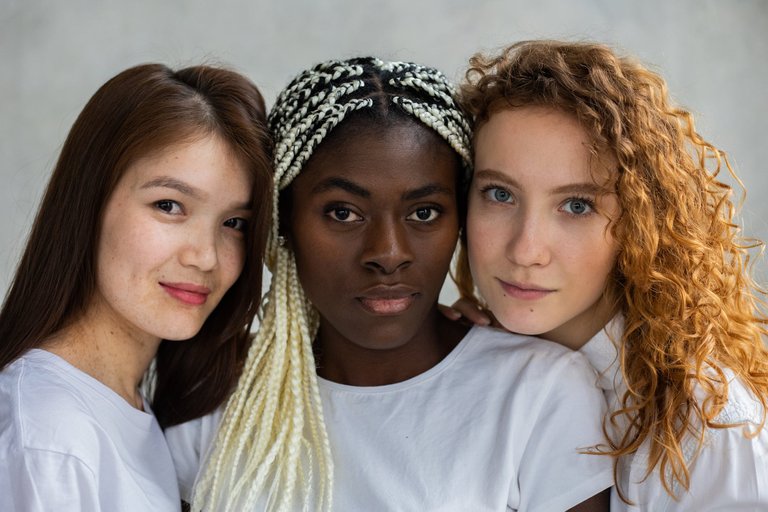
Image by Monstera
Cuánta alegría siento de poder volver a escribir para esta bellísima comunidad que tanto me encanta, como siempre traigo un tema para compartir con ustedes que espero pueda ayudarlos, mi intención es llevar a la reflexión y explicar de una manera sencilla la manera en la que yo veo el respeto y por qué lo considero tan importante. El respeto es un tema que a menudo se habla, pero pocas veces se entiende verdaderamente su importancia. En esencia, el respeto es la consideración y el reconocimiento de la dignidad y los derechos de los demás, independientemente de su origen, raza, religión, habilidades o discapacidades. En otras palabras, el respeto es tratar a los demás como nos gustaría ser tratados, con amabilidad, tolerancia y empatía.
Para ilustrar el valor del respeto, imaginemos un escenario común en cualquier lugar del mundo. Estás en un autobús lleno de gente, y de repente alguien decide escuchar música a todo volumen sin usar auriculares. El ruido es tan fuerte que no puedes concentrarte en tu lectura, y el conductor del autobús tampoco puede escuchar las señales de tráfico. ¿Qué puedes hacer al respecto?
Hay varias opciones. Podrías confrontar a la persona y decirle que baje el volumen, pero esto podría desencadenar una discusión o incluso una pelea. Podrías ignorarlo y esperar a que se detenga o se baje, pero esto podría hacer que tu experiencia de viaje sea desagradable. O podrías intentar encontrar una solución pacífica y respetuosa para todos.

Image by Erik Mclean
Imaginemos que optas por esta última opción. Te acercas al individuo y le pides amablemente que baje el volumen, explicándole que estás tratando de leer y que el conductor también necesita escuchar las señales de tráfico. El individuo podría responder de diferentes maneras, pero si es una persona razonable, probablemente comprenderá tu situación y bajará el volumen o se pondrá los auriculares. En este caso, ambas partes mostraron respeto mutuo: tú respetaste los derechos del individuo a escuchar música, pero también expresaste tus necesidades y preocupaciones de manera respetuosa, mientras que el individuo respetó tus derechos al bajar el volumen.
Este ejemplo muestra cómo el respeto puede hacer que la vida cotidiana sea más armoniosa y satisfactoria para todos. Cuando mostramos respeto a los demás, les estamos diciendo que valoramos sus opiniones, sentimientos y derechos. Les estamos diciendo que merecen ser tratados con dignidad y justicia, independientemente de sus diferencias o similitudes con nosotros. Y cuando los demás nos muestran respeto, sentimos que somos aceptados y apreciados por quienes somos, lo que a su vez aumenta nuestra autoestima y confianza en nosotros mismos.
Sin embargo, el respeto no es algo que se da automáticamente o que se exige a los demás. El respeto es una actitud que debe ser cultivada y practicada de manera constante en nuestras relaciones interpersonales. Esto significa que debemos estar dispuestos a escuchar a los demás, a tratarlos con amabilidad y compasión, a aceptar sus diferencias y a aprender de ellos. También significa que debemos respetar nuestras propias necesidades y límites, y comunicarlos claramente a los demás de manera respetuosa.

Image by fauxels
Es importante destacar que el respeto no significa que tengamos que estar de acuerdo con todo lo que los demás hacen o dicen. Todos tenemos derecho a tener opiniones y perspectivas diferentes, y es natural que surjan desacuerdos y conflictos en nuestras relaciones. Lo importante es cómo manejamos estos desacuerdos y conflictos, y si somos capaces de mantener una actitud de respeto y tolerancia hacia los demás, incluso cuando no estamos de acuerdo con ellos.
Además, el respeto no es solo algo que debemos mostrar hacia los demás, sino también hacia nosotros mismos. Esto significa que debemos tratar nuestro cuerpo y nuestra mente con cuidado y amor, y no permitir que otros nos falten al respeto o nos hagan daño de alguna manera. También significa que debemos tener respeto por nuestras propias necesidades y límites, y no permitir que otros nos manipulen o nos obliguen a hacer cosas que no queremos hacer.
Debemos en pocas palabras, respetar para que nos respeten y respetar aunque otros no nos respeten, el respeto es un valor fundamental en nuestras relaciones interpersonales. Nos permite convivir pacíficamente con los demás, aceptar y valorar nuestras diferencias, y construir relaciones basadas en la confianza y la empatía. No es nada fácil sobre todo cuando estamos rodeados de personas que no ven el respeto de la misma manera que uno, pero con algo de paciencia y esfuerzo podemos hacerlo y al final dar un buen ejemplo a los demás.

Image by Monstera
How happy I am to be able to write again for this beautiful community that I love so much, as always I bring a topic to share with you that I hope can help you, my intention is to lead to reflection and explain in a simple way the way I see respect and why I consider it so important. Respect is a topic that is often talked about, but rarely is its importance truly understood. In essence, respect is the consideration and recognition of the dignity and rights of others, regardless of their background, race, religion, abilities or disabilities. In other words, respect is treating others as we would like to be treated, with kindness, tolerance and empathy.
To illustrate the value of respect, let's imagine a common scenario anywhere in the world. You're on a crowded bus, and suddenly someone decides to listen to loud music without using headphones. The noise is so loud that you can't concentrate on your reading, and the bus driver can't hear the traffic signals either. What can you do about it?
There are several options. You could confront the person and tell him to turn down the volume, but this could trigger an argument or even a fight. You could ignore him and wait for him to stop or turn it down, but this could make your travel experience unpleasant. Or you could try to find a peaceful and respectful solution for everyone.

Image by Erik Mclean
Let's imagine you opt for the latter option. You approach the individual and politely ask them to turn down the volume, explaining that you are trying to read and that the driver also needs to hear the traffic signals. The individual might respond in different ways, but if they are a reasonable person, they will probably understand your situation and either turn down the volume or put on their headphones. In this case, both parties showed mutual respect: you respected the individual's rights to listen to music, but you also expressed your needs and concerns in a respectful manner, while the individual respected your rights by turning down the volume.
This example shows how respect can make everyday life more harmonious and satisfying for everyone. When we show respect to others, we are telling them that we value their opinions, feelings and rights. We are telling them that they deserve to be treated with dignity and fairness, regardless of their differences or similarities to us. And when others show us respect, we feel that we are accepted and appreciated for who we are, which in turn increases our self-esteem and self-confidence.
However, respect is not something that is automatically given or demanded from others. Respect is an attitude that must be cultivated and practiced consistently in our interpersonal relationships. This means that we must be willing to listen to others, to treat them with kindness and compassion, to accept their differences and to learn from them. It also means that we must respect our own needs and limits, and communicate them clearly to others in a respectful manner.

Image by fauxels
It is important to note that respect does not mean that we have to agree with everything that others do or say. We are all entitled to have different opinions and perspectives, and it is natural for disagreements and conflicts to arise in our relationships. What is important is how we handle these disagreements and conflicts, and whether we are able to maintain an attitude of respect and tolerance towards others, even when we disagree with them.
Furthermore, respect is not only something we should show towards others, but also towards ourselves. This means that we should treat our body and mind with care and love, and not allow others to disrespect or harm us in any way. It also means that we must have respect for our own needs and limits, and not allow others to manipulate us or force us to do things we do not want to do.
In short, we must respect to be respected and respect even if others do not respect us, respect is a fundamental value in our interpersonal relationships. It allows us to live peacefully with others, to accept and value our differences, and to build relationships based on trust and empathy. It is not easy, especially when we are surrounded by people who do not see respect in the same way we do, but with some patience and effort we can do it and in the end set a good example to others.